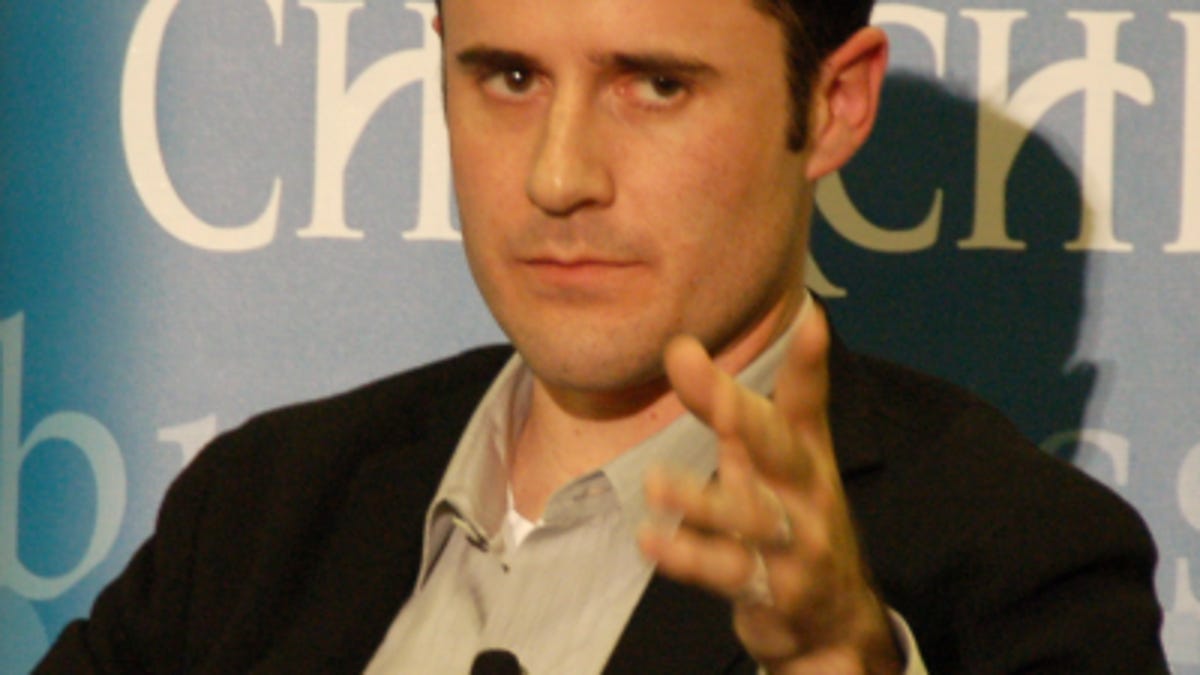Twitter CEO: The revenue's coming soon, but I won't tell you how
Evan Williams talks at the Churchill Club about Twitter's new revenue model and new features.

At a Churchill Club event in San Francisco on Tuesday, Twitter co-founder and CEO Evan Williams brushed off--again--criticisms that the company is slow to turn on its revenue-generating engines.
At first, it sounded like Williams was a bit lost on the revenue front. "We will make money, and I can't say exactly how because...we can't predict how the businesses we're in will work." As he has before, he hinted at generating fees from sales-related Twitter content and from corporate users.
But as the conversation went on, one got the impression that Williams actually has a plan. He revealed that the company is in talks with large consumer packaged good companies, and whether that's to sell the company internal services or to help the company monetize its own Twitter feeds, it's promising.
Williams said, "We're looking at Q1 for revenues." This is a change from the original, pre-economic meltdown plan. "The original plan was to focus on revenues in 2010. That's no longer the case, since I don't want to raise money in 2009."
The revenue plans aren't just ads or sponsorships. "We want revenues to be product-based. Google built something that can really scale, and that's our intention as well."
Google's a big model for a small company (Twitter has 25 people), and Williams' laid-back affect belies his ambition. He says, "I worked on Blogger for six years, and I don't think that's as big as Twitter. Twitter will dwarf that."
Williams co-founded Blogger, which Google bought in 2003. So it was interesting when Kevin Maney, who was interviewing Williams, asked him if he was worried about "Microsoft or Yahoo" launching a direct competitor to Twitter. Williams said, "I'm pretty sure they are (planning to), but we can't worry about that. Focus is a really big deal. Even Google stumbles on the focus issue. It's not as important as search and advertising. Innovator's dilemma works against bigger companies."
In other words, Twitter will get big by staying small--or at least by not expanding into new areas.
And speaking of expansion, there are several projects on the books. Williams said that the top feature requested on Twitter is grouping, and that it's in the works. This will enable users to segment their Twitter friends into sub-networks to send specific groups certain posts. It will also make Twitter a more useful tool in business.
Williams also said that the company is working on ways to make Twitter easier for newbies to get into. "It's amazing anyone uses Twitter today," he said. "It's hard."
I left the talk with more confidence in Williams than I had previously, although I'm still not convinced that Twitter can be as big as Williams says it will become. Not because the concept isn't big--it is--but rather because I am not convinced that a natural monopoly will form in the space. Social services are tending toward interoperability. Also, it's never a sure bet that the first company in a technology space will be the one that ends up dominating in it. Google wasn't the first search engine, for example. MySpace wasn't the first social network. The microblogging corner of the technology economy is extremely young, just as Twitter is.
Previously: 11 Twitter business models: Vote for the best.

